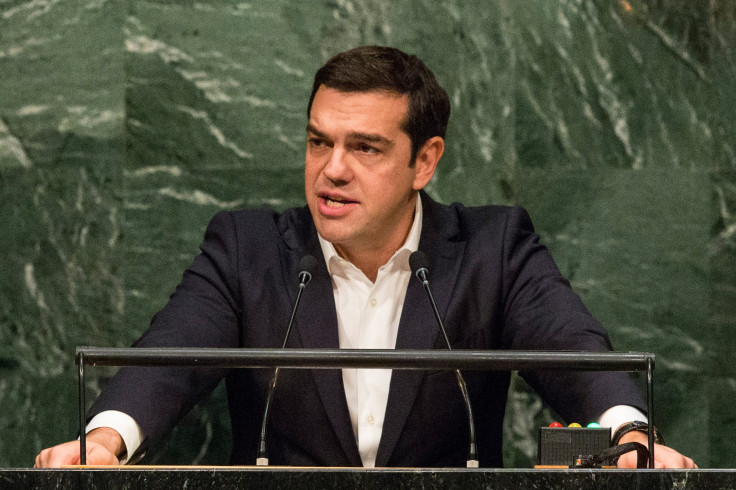Greek Prime Minister Tsipras Urges Reconvened Parliament To Act Fast On Reforms To Free More Aid

Recently re-elected Prime Minister Alexis Tsipras sent a message to the newly sworn-in Greek Parliament Saturday: Lawmakers need to tackle deeply unpopular measures fast. Speaking to parliamentary members of his leftist Syriza party, he said numerous reforms need to take place right away in order for Greece to gain access to necessary aid and to escape international supervision of its economy.
Everything from public pensions to sanitation services are facing steep cuts, and lawmakers will also have to raise taxes and enact financial services reforms by Nov. 15 in order to free up more aid to keep the country’s banking system afloat. In August, Greece and other eurozone members agreed to an $86 billion bailout in return for austerity measures and efforts to rake in tax cheats to generate more income.
"Implementing the bailout is not going to be easy, but we are obliged to make these decisions although we don't like them," Tsipras said, according to Reuters. "Our main target is to exit this system of supervision and regain market access. But a necessary condition for that is to return to growth."

Tsipras said implementing the unpopular reforms is necessary to open the way for debt relief negotiations. European Union officials have warned Athens not to expect major write-downs of its debt. Germany in particular opposes any form of debt relief, arguing that Greece can pay down what it owes over time if proper measures, including cuts to public services and economic reforms aimed at spurring growth, are put in place.
The International Monetary Fund advocated capping Greece’s annual borrowing costs at 10 percent of its annual economic output by essentially refinancing the country’s debt to extend loan maturities and offer grace periods.
In July, Tsipras, who was elected on an anti-austerity platform, shocked Europe by calling for a referendum to reject the conditions imposed on the country by lenders for further financial aid. Greek voters rejected austerity measures, but after banks closed and rationed withdrawals, Tspiras did an about-face and accepted austerity measures that were more stringent than the ones Greek voters rejected.
Tsipras was re-elected Sept. 20 and has pulled together an anti-austerity coalition between the leftist Syriza party he’s led since 2009 and the conservative Independent Greeks party.
Greece owed creditors -- including the International Monetary Fund, the European Central Bank and other eurozone members -- about $271 billion at the end of June.
© Copyright IBTimes 2025. All rights reserved.






















